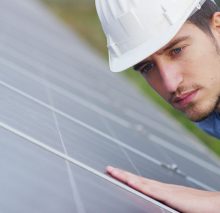Why Never Lease?
$15,000–30,000 for a residential solar energy system makes leasing sound pretty appealing. Simply signing at the dotted line may also appear to be a lot easier than buying your own system and securing financing. Don’t let this perception fool you, there are a few more things to consider.
LESS SAVINGS
First and foremost, leased systems do not qualify for local incentives, rebates, or federal tax benefits. All of these advantages go to the third-party owner of the system—a significant setback. Many leases contain an “escalator clause.” Lease payments increase 3-4% per year, designed for an easy sell with front loaded savings. In the final years of the lease, customers find themselves paying 120-150% more than they signed up for!
- Own your system: 200–300% savings over the lifetime of your solar panel system (25 years)
- Lease your system: 10–30% savings over the duration of your lease agreement (20-25 years)
DIFFICULT TO SELL YOUR HOUSE
Solar lease agreements typically have duration of 20 to 25 years, at which point you can renew your agreement, or purchase the system outright. Otherwise the solar company will remove the system and with it your savings. If you’re trying to sell your house before your lease agreement is up, you have two options: buy out the lease, or have the prospective buyer assume the agreement. Most buyers are reluctant to assume the lease agreement from the sellers.
When you lease a solar system, a UCC-1 financing statement or lien gets attached to your home. This gives a future creditor notice that a third party claims an interest in the property. Working through the process of removing this lien form is a huge hassle, can take a long time, and may simple not be worth waiting for from the perspective of a prospective home buyer.
Solar leasing companies usually offer to relocate the system from one house to another for a fee ranging from $500–1,000, which seems reasonable, but not always does the new house easily accommodate the old system. Additional approvals from home owners associations and utility providers combined with additional configuration and installation costs may make this option simply not feasible.
NO SERVICE
A leased solar system is owned by your leasing company. They are the ones responsible for the service and maintenance of the system. Despite the fact that leasing companies offer service plans, the reality is often discouraging. They operate out of state, have call centers handling requests, will tell you that equipment problems aren’t covered by the maintenance plan but by the warranty, storm damage has to be addressed with the homeowners insurance, and so on… Low-end inverters start failing after about 10 years, just as service agreements run out, leaving maintenance and repair up to the homeowner. With a lease, you have no established relationship with a local service provider. Some are reluctant to service systems that are not installed by them. When your needs aren’t met, who do you call to fix your problem?
We don’t offer lease agreements because they are bad for our customers. Our equipment, workmanship, and service is guaranteed, and we’ll personally maintain the system over its entire lifetime. Enjoy peace of mind, save money, and continue to generate green energy for Colorado!



